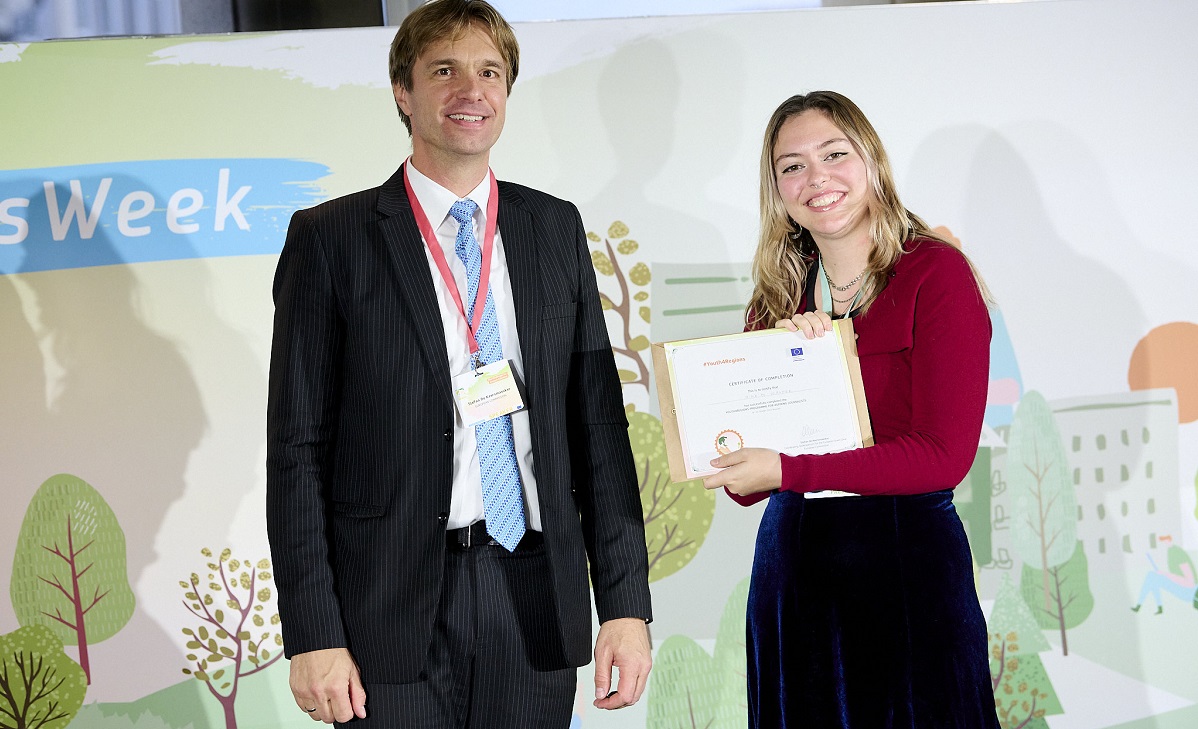Panorama
An ode to the young journalists of Europe
- 01 Feb 2023
This article was written by a member of the Youth4Regions programme, following her participation in Regions Week, which was held in October this year. She expresses admiration for the spirit of inclusiveness, cohesion and freedom that the EU embodies.
Being from Denmark and living in London, UK, the EU can often feel worlds away. Brexit has left most Europeans in London with a heartache that for many can only be remedied by returning to their home country.
London has been hollowed out from within, and the international aspect of the city that drew me here has been diminished. It reminds me of a poster that was circulated by expats in Denmark in response to hostility during the 2014 influx of migrants. It reads: “Foreigners, please don’t leave us alone with the Danes!” I often jokingly think to myself: “Europeans, please don’t leave me alone with the Brits.”
When I arrived at the Youth4Regions programme in Brussels, I joined more than 40 young journalists from countries within and outside the EU. Although I was warmly embraced by my peers, a quick introduction to the EU cohesion policy by Karolina Kottova, head of communications for the European Commission’s department for regional and urban policy, brought me down to earth again.
In the context of cohesion policy, she explained that people often speak of countries belonging to one of two groups: the frugal countries who usually give more than they receive monetarily, and those that receive more than they give. Together, they achieve the greater goal of cohesion outlined in the EU treaty.
I felt hyper-aware of originating from Denmark, a so-called frugal country, and living in the UK which left the EU for that very reason. My attitude towards the EU has only grown more positive despite this adversity, and it made me realise that all the delegates approach the EU from intensely different angles. Even though we are all journalists, we have many different life experiences to draw upon.
Among so many incredible people there was Maria from Poland, who is deeply passionate about labour relations and with whom I shared an almost adolescent admiration of The Economist. Mira from Finland comes from a town that no one has heard of, but she has worked at national news outlets and travelled enough to speak both Spanish and Portuguese. Hanneke from the Netherlands went to Sweden to learn investigative journalism and does not shy away from challenges like data journalism.
After a hard day’s reporting, we all connected over Belgian beers at Place du Luxembourg, a square in front of the European Parliament building where anyone and everyone working with the EU comes for a drink after work. While chatting, someone who worked at the European Commission turned to me and said, “you know, this is a once-in-a-lifetime opportunity”. “Why?” I asked wryly.
When looking around at the crowd, the many people in suits gathered with little bottles in their hands on the square was not dissimilar to after work drinks in the city of London, even though the beers did not quite measure up to a pint. He answered, “because in London all you meet are bankers, but here you’ll meet the leaders of Europe”.
I did not meet any European leaders at Place du Luxembourg that evening, but the following day we had the opportunity to get up close and personal with the European Commission. We went to see the entrance to Ursula von der Leyen’s flat in the European Commission building. Here, we learned that not only is she the first female president of the European Commission, she also has seven children.
This provided a beacon of hope as I looked around our group of aspiring journalists, the vast majority of whom are women and who will inevitably work in newsrooms dominated by men, including the chief editors.
I hope that one day young people like us must no longer fight for equality, and that the EU continues to embrace cohesion in its most inclusive sense. After all, the EU is a spearhead for international cooperation, with the ability to act to a degree that other international organisations are unable to. The freedom of movement that the EU allows is beautiful, and sorely missed in the UK. It can allow for true internationalism, which London used to be so well versed at, before it lost its footing.
So, that is what I take back to London with me, the reminder that the world is so much bigger than ourselves. I hope one day to return to Brussels and meet Margrethe Vestager, Denmark’s former education minister who chairs the Commissioners’ group on a Europe fit for the digital age, and who, coincidentally, lived near me in London for a couple of years. Until then, I have the friends I made via Youth4Regions, and this selfie with her picture in the European Commission building.
- Nina Bo Wagner

